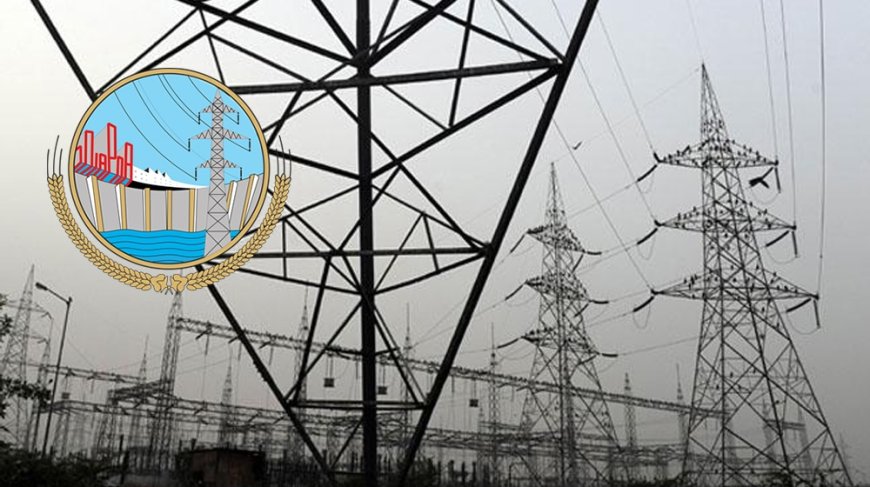PAK Braces for Another Shock: Electricity Prices to Rise in OCT 2025
NEPRA confirms a net hike of Rs. 1.98 per unit in Pakistan’s electricity bills for October 2025 as negative FCA ends and new positive FCA is applied. Consumers to bear higher costs amid surcharges and taxes.

Electricity consumers across Pakistan will see a net increase of Rs. 1.98 per unit in their October 2025 bills, following the adjustment of fuel charges announced by the National Electric Power Regulatory Authority (NEPRA). The rise comes after the expiry of the negative fuel cost adjustment (FCA) that provided relief in September and the addition of a positive FCA for August, effectively raising overall tariffs.
According to details presented during a NEPRA public hearing on Monday, the negative FCA of Rs. 1.79 per unit applied in September will no longer be available from October. Instead, a positive FCA of Rs. 0.19 per unit for August will be added, resulting in a combined increase of Rs. 1.98 per unit for millions of households and businesses.
CPPA-G Petitions for Recovery of Rs. 2.62 Billion
The Central Power Purchasing Agency-Guarantee (CPPA-G), in a petition submitted to NEPRA on behalf of ex-Wapda distribution companies (Discos) and K-Electric, detailed the reasons behind the adjustment.
According to the petition:
-
The reference fuel cost for August 2025 was calculated at Rs. 7.3149 per unit.
-
The actual average generation cost reached Rs. 7.5059 per unit.
-
This created a difference of Rs. 0.1911 per kWh, prompting CPPA-G to request recovery of the shortfall.
NEPRA officials confirmed that this adjustment will collectively add around Rs. 2.62 billion to consumers’ October bills.
Additional Taxes and Surcharges Burden Consumers
Consumer representatives attending the NEPRA hearing expressed deep concerns over the layering of additional charges on electricity bills.
They highlighted that:
-
A general sales tax (GST) of approximately Rs. 0.60 per unit is being levied.
-
A fixed surcharge of Rs. 3.23 per unit is also applied across bills.
-
The surcharge revenue is being utilized by the federal government to pay off Rs. 1,225 billion in loans from 18 commercial banks.
Consumer groups argued that such heavy layering of taxes and surcharges on top of FCA adjustments is pushing electricity prices in Pakistan to unsustainable levels, making bills unaffordable for average households.
Fuel Cost Adjustments (FCA) are monthly charges that reflect changes in the cost of fuel used for electricity generation. When actual fuel costs exceed reference prices, consumers are charged extra. Conversely, when actual costs fall below reference levels, relief is passed on.
In September, consumers benefited from a negative FCA of Rs. 1.79 per unit, which lowered bills. However, that adjustment was temporary. With its expiry and the implementation of a positive FCA for August, bills in October will rise instead.
NEPRA’s Position on Price Hike
NEPRA officials defended the adjustment, saying that the FCA mechanism ensures transparency in the power sector by reflecting the true cost of fuel.
“Fuel costs fluctuate due to global market conditions, exchange rate changes, and import dependency. The FCA allows us to pass on these fluctuations fairly, ensuring the financial sustainability of the power sector,” a NEPRA spokesperson explained.
Rising Tariff Concerns in Pakistan’s Power Sector
The Rs. 1.98 per unit hike adds to a series of tariff increases in recent months that have strained households and businesses alike. With inflation already hovering around double digits and energy prices rising globally, experts warn that the additional hike could further erode purchasing power.
Industrial consumers, particularly small and medium enterprises (SMEs), have voiced concerns that higher tariffs will raise production costs, reduce competitiveness, and eventually lead to higher prices of essential goods in the local market.
Broader Economic Implications
The power tariff hike comes at a time when Pakistan’s economy is facing multiple challenges:
-
High inflation and weak purchasing power continue to squeeze households.
-
Import dependence for fuel exposes Pakistan to global oil and LNG price fluctuations.
-
Rising circular debt in the power sector, which has crossed Rs. 2.6 trillion, creates persistent pressure on the government to impose surcharges and recover additional costs from consumers.
Economists caution that frequent tariff adjustments, though necessary from a regulatory standpoint, risk further slowing down economic recovery by raising the cost of doing business and fueling inflation.
Experts and consumer advocacy groups are urging the government to adopt long-term reforms in the energy sector rather than repeatedly burdening end-users with FCA and surcharges. Suggested measures include:
-
Accelerating the shift toward renewable energy to reduce import dependency.
-
Expanding local coal and hydropower projects to bring down generation costs.
-
Overhauling inefficient transmission and distribution networks, which cause massive line losses.
-
Reducing cross-subsidization, where some consumer categories pay higher prices to cover subsidies for others.
Such reforms, they argue, are essential for stabilizing electricity prices in Pakistan and ensuring affordability for both households and industries.
With the expiry of September’s negative FCA and the addition of a new positive FCA for August, electricity prices in Pakistan will increase by Rs. 1.98 per unit in October 2025. The adjustment will impact millions of consumers nationwide, adding an estimated Rs. 2.62 billion to October’s bills.

 Israr Ahmed
Israr Ahmed